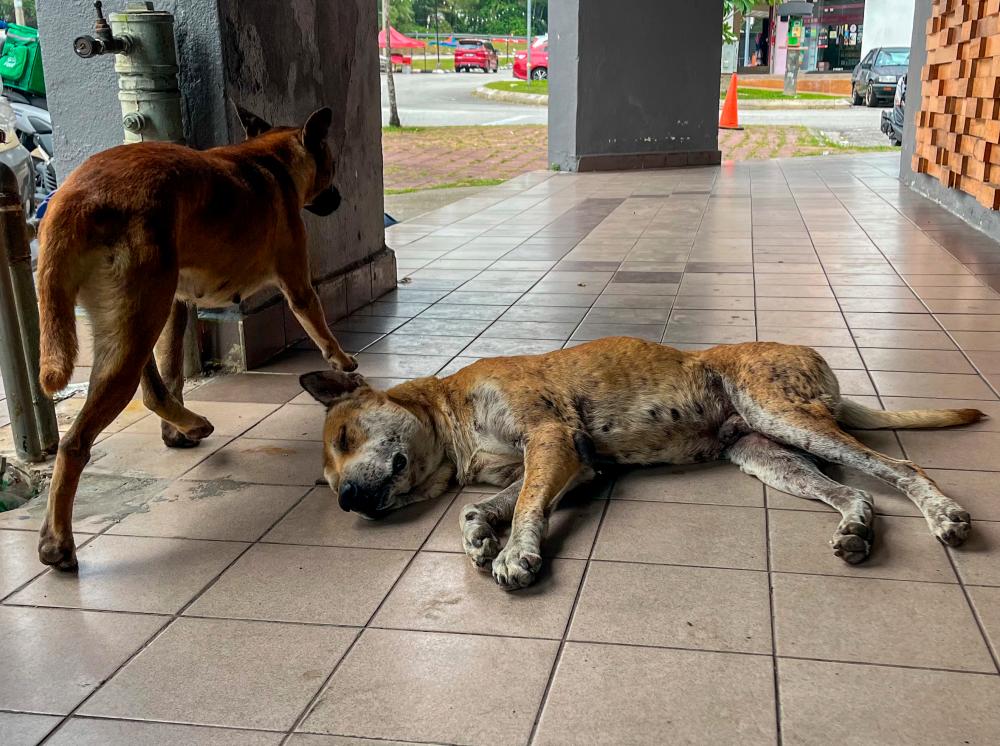PETALING JAYA: The Shah Alam City Council operation to catch and kill 500 stray dogs continues to rile animal lovers despite its postponement as announced by Mayor Datuk Cheremi Tarman on Tuesday.
News on the operation, which was scheduled to be held on April 22 to 24 at Setia Alam, was widely shared online and raised hackles among the public.
Animal lovers specifically pointed out that it was wrong for the council to invite the public to volunteer as participants of the kill plan, while promising to pay RM30 for each dog captured.
Cheremi said the operation has been postponed to streamline coordination with animal welfare NGOs. He also claimed it was not the council’s practice to kill stray animals.
“The council does not put down animals as only veterinary officers are allowed to do so,” he said at a press conference after meeting several NGOs on Tuesday.
The postponement notwithstanding, the council’s insistence on carrying out its plan flies in the face of objections from Tengku Permaisuri Selangor Tengku Permaisuri Norashikin, who had expressed sadness and disappointment over the move.
Her Royal Highness said she disagreed strongly with the catch-and-kill approach practised by local authorities.
In a post on the Selangor Royal Office Facebook page on April 1, she said: “As Royal Patron for the Stray Free Selangor campaign managed by the Society for the Prevention of Cruelty to Animals, I want local authorities to fine-tune all new approaches that are more holistic to manage these stray dogs.”
Tengku Permaisuri Norashikin also said she had previously held discussions with SPCA about the welfare of stray dogs and the reduction of their numbers through the Caring and Compassionate Communities (CCC) campaign.
“The CCC campaign outlines how local authorities and the SPCA can engage with residents on responsible pet ownership.
“This includes getting advice from SPCA and NGOs if there is a need to euthanise these stray animals due to health reasons.”
Tengku Permaisuri Norashikin suggested humane methods, such as local authorities and animal-loving residents establishing shelters for stray animals in every housing estate and involving housing developers in building protection centres for them.
PAWS Animal Welfare Society manager Lim Choon Sun said it would be “belligerent” for the council to proceed with the operation despite Tengku Permaisuri Norashikin having stated her position.
“It is shocking that the operation is merely postponed and not cancelled. Also, why is the council resorting to such drastic measures without pursuing alternative methods to control the stray population such as the trap-neuter-return method?
“If a resident’s pet dog wanders from its house, the owners will be powerless to intervene and save it since the council also insists that captured dogs cannot be reclaimed and will be killed.”
Lim said PAWS has always advocated for more humane methods of managing the stray dog population, such as trap-neuter-return programmes or having more no-kill animal shelters.
He also called for a grace period to allow owners to reclaim their pets in cases when the dogs are mistaken for strays and captured.
Veterinarian Dr Faiz Jaafar said spaying and neutering programmes were the most common methods to control the stray population.
“Surgically sterilising the strays and then returning them to their original environment is humane and practised around the world.”
Faiz said after sterilisation, the dogs recover from anaesthesia under veterinary supervision before being released to the area from which they were captured.
He added that sterilised dogs are less likely to exhibit problematic behaviour associated with mating, such as aggression or roaming in search of mates.









